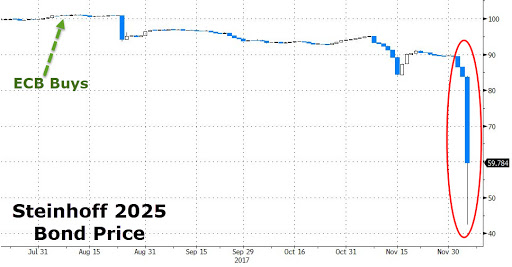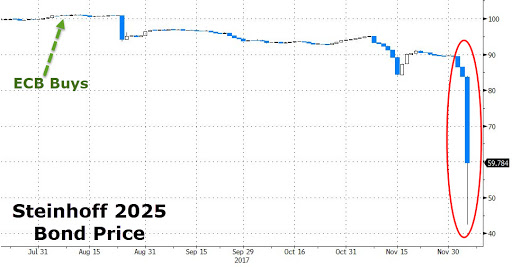Back in November, still smarting from a year he would rather forget, Russell Clark and his Horseman Capital, i.e. the “world’s most bearish hedge fund” unveiled what he would short next: according to Clark, the next major source of alpha would be shorting fallen angel bonds or those investment-grade companies in danger of being downgraded to junk.
Citing a recent IMF Global Financial Report, unveiled that “US investment grade debt is very low quality, and could produce some large fallen angels [and] mutual funds are much larger in the high yield market than they used to be. [L]ow rates means the capital losses are much higher than they used to be. And that investors in high yield mutual funds are much flightier than they used to be! Essentially the IMF are telling me that if you get a large enough fallen angel, the high yield market will freak out, and volatility will spike causing volatility targeting investors to dump leveraged positions. Sounds good to me”.
One month later, in the aftermath of Steinhoff fiasco, in which the ECB found itself long tens of millions of bonds in a company which went from investment grade to deep junk after it was revealed that it may have engaged in occasional fraud, crashing the bonds…

… Mario Draghi only made the bearish “fallen angel” case more explicit, by clarifying that going forward the ECB would likely liquidate bonds which were purchased as IG and subsequently downgraded to Junk (as we explained in detail in “The ECB Has Some Bad News For Junk Bond Buyers“).

Then, at the start of June, legendary distressed investor Oaktree Capital, joined the bandwagon of fallen angel hunters, saying that the fund “expects to see a flood of troubled credits topping $1 trillion as rising interest rates overwhelm low-quality loans and bonds”.
Speaking at the Bernstein Strategic Decisions Conference, Oaktree Capital’s Chief Executive Jay Wintrob said that when the cycle turns it will be faster and larger than ever as “fallen angels” proliferate, and added ominously that “there will be a spark that lights that fire”.
Picking up on last week’s warnings by Moody’s, in which the rating agency warned of a junk bond default avalanche as rates rise, Wintrob said that the supply of low-quality debt is significantly higher than prior periods, while the lack of covenant protections makes investing in shaky creditors riskier than ever.













Leave A Comment